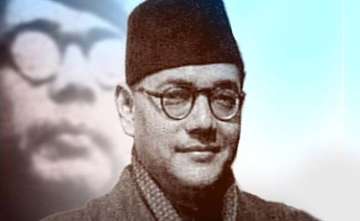Government razed key file related to Netaji’s mysterious disappearance in 1972
In the recently declassified 25 files relating to Netaji Subhas Chandra Bose, it has emerged that a key file, containing crucial information about his mysterious disappearance, was destroyed by the Centre decades back as part of a 'routine' exercise.

New Delhi: In the recently declassified 25 files relating to Netaji Subhas Chandra Bose, it has emerged that a key file, containing crucial information about his mysterious disappearance, was destroyed by the Centre decades back as part of a 'routine' exercise. The document in question is - File No 12 (226)56-PM.
According to Times of India, the file was destroyed came to light when the Justice Mukherjee commission inquiring about the disappearance of Netaji sought this file in 2001. It was only then, the PMO told the commission that the file had been weeded out in routine course in 1972.
The commission was also informed that the summary contents of file, however, can be found in the cabinet secretariat because the file had agenda papers and cabinet decisions which were stored. But the cabinet secretariat had in 2001 said that it had no record available related to the demanded file.
The Mukherjee Commission, one-man board constituted by the Government of India in 1999 to inquire into the death of Netaji, in its report concluded that the availability of the file would have helped it arrive at the truth.
Morarji Desai had raised questions on Netaji's death
Former Indian prime minister Morarji Desai had raised questions about the death of Netaji in 1977, the newly released declassified files pertaining to Netaji revealed on Friday. The third cache of 25 files was released by Union Culture Minister Mahesh Sharma at the National Archives here.
The latest batch comprises five files from the Prime Minister's Office (PMO), five from the Ministry of Home Affairs (MHA), and 15 from the Ministry of External Affairs (MEA), pertaining to the period between 1956 and 2009.
Speaking to media after the release of the files, the minister said in a letter in 1977 Moraji Desai ordered further inquiry into the death of Netaji while previous governments concluded that he died in a plane crash on August 18, 1945.
The minister added the declassified files raise various questions regarding Netaji's ashes, kept in a temple in Tokyo, and the possibility of DNA verification of it.
“Morarji Desai questioned the veracity of reports of Netaji's death while the previous governments have concluded that he died in a plane crash in 1945. However, there were various questions regarding where he died, when and what time," Sharma said.
"Though previous governments have ruled out a DNA test on his ashes, it also needs to be discussed whether a DNA test of his ashes can be carried out or not,” he added.
Two previous commissions of inquiry said that Netaji had died in a plane crash in Taipei on August 18, 1945. Contrary to the two commission reports, a third panel headed by Justice M.K. Mukherjee concluded that Bose was alive.
Speaking on the occasion, Sharma announced that the Centre will soon set up a Netaji Subhas Chandra Bose memorial and museum in the capital.
“The demand for Netaji memorial was in the public domain since 1977 and now Prime Minister Narendra Modi has decided to fulfil people's wish. The formalities of a memorial and museum are done and the process is in the advanced stage," the minister said.
"The memorial will have all documents related to Bose and will be available for research work," he said.
Last month, the government said in the Lok Sabha that two files, including one from the Prime Minister's Office (PMO), related to Netaji were missing. It also said Japan had agreed to declassify two files on Netaji by the year-end.
Asked about the missing files, Sharma said investigations were on regarding the missing files. “We are investigating on the missing files".
He also said the move by Japan and Russia to help India with more files regarding Netaji is a welcome one.